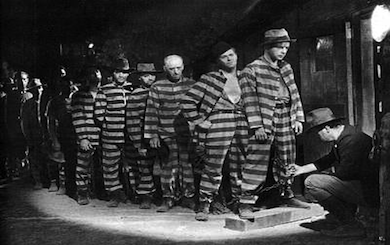One fact that enough people clearly do not know is that moderation is a possible and probable outcome for people with substance use problems. I stumbled onto a good example of that today while looking through a great book published back in 1981: Controlled Drinking by Nick Heather and Ian Robertson.
They reviewed a study that followed 93 male prisoners diagnosed as alcoholics. In the entire group, only 2 of them received treatment for alcoholism. The researchers checked in with the men 8 years after release from prison and found that 38 of them were “in remission.” The breakdown of their outcomes goes like this:
- 7 were abstinent
- 17 were “moderate,” described as “they drank no less then once a month and no oftener than several times a week, rarely becoming intoxicated. These drinking practices had been maintained for at least two years.”
- 8 were getting drunk weekly and “had experienced no “drink-related problems for two years or more.”
- 6 more switched from whiskey to beer. They also didn’t have any “drink-related problems for two years or more”, even though”they still drank almost daily and sometimes excessively.”
So there you go, one more powerful example of the fact that people can and do become moderate substance users. In this case, these were extreme cases of “gamma alcoholics” – the term which Jellinek used to describe the stereotypical Alcoholics Anonymous brand of alcoholics (aka “real alcoholics”) – said to experience tolerance, withdrawal, craving, and “loss of control.” Nevertheless, of those who were “in remission”, 81% were stably drinking in a non-problematic fashion. And even if we subtract the 6 men who were drinking daily without problems, a majority were moderate drinkers – 65%.
As an added bonus fact, the authors noted that:
The respondents’ own reports, together with a retrospective analysis of events since leaving prison, indicated that increased control over drinking was responsible for an improvement in social adjustment and a reduction in arrests, rather than the other way around
